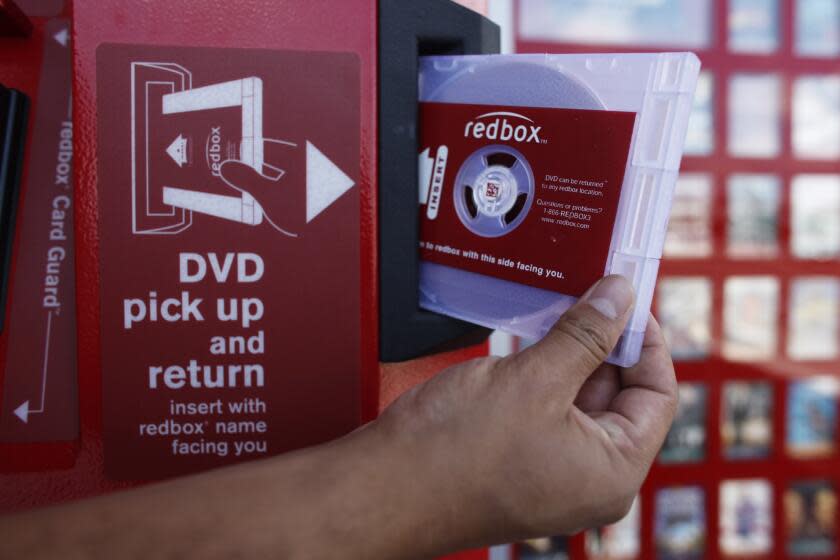RIP Redbox. The DVD kiosk business will shut down and fire 1,000 people

Redbox, operator of the once-prominent red DVD rental boxes known for quick movie checkouts at grocery stores and pharmacies, has flatlined.
The business' parent company, Chicken Soup for the Soul Entertainment, received court approval on Wednesday to change its bankruptcy filing from Chapter 11 to Chapter 7, with plans to liquidate its assets and lay off 1,000 employees.
Read more: Redbox is bankrupt. Why Chicken Soup couldn't heal the DVD rental business
Chicken Soup for the Soul Entertainment filed for Chapter 11 bankruptcy this month, after reports that staffers were not getting paid.
The company's downfall comes after it struggled to maintain enough scale and financing, as well as adapt to consumers' changing viewing habits. Redbox was clobbered by the home entertainment industry's switch to streaming and digital video on-demand options.
The collapse also comes amid allegations of mismanagement brought by the firm's chief lender, HPS Investment Partners.
In a Chapter 11 bankruptcy, a business is protected from creditors as it comes up with a reorganization plan in an effort to stay afloat and pay back debts. A Chapter 7 liquidation means the company is throwing in the towel.
Redbox was founded in 2002 as a McDonald's experiment and later became its own business, capitalizing on the popularity of DVDs and the convenience of its cheap rental system.
Customers could go up to one of the kiosks in 2009 and rent a DVD for $1 a day, with each machine holding as many as 700 DVDs and 200 movie titles. One of its kiosks could earn about $50,000 annually in revenue after three years of operation, according to a 2009 Times report.
Read more: Chicken Soup for the Soul to buy Redbox
In 2022, Oakbrook Terrace, Ill.-based Redbox was acquired by Chicken Soup for the Soul Entertainment in a $375-million all-stock deal.
At the time, Redbox had 38,000 kiosks in the United States. Chicken Soup for the Soul Entertainment is a subsidiary of Chicken Soup for the Soul LLC, the Cos Cob, Conn.-based publisher known for the uplifting book series of the same name, as well as a line of pet food.
The Chicken Soup entertainment arm took on significant debt to complete the transaction, a risky bet on the future viability of DVD rentals. In public filings, the company blamed the COVID-19 pandemic and last summer's Hollywood's strikes for choking off the flow of fresh content.
Chicken Soup for the Soul Entertainment, which also includes the ad-supported streaming service Crackle, lost $636.6 million last year. Its Chapter 11 filing listed debts totaling $970 million and assets worth $414 million.
About 24,000 Redbox kiosks remain, according to bankruptcy court filings, many of them at Walmart and Walgreen stores. The two retailers are listed as unsecured creditors.
"1,000 people are about to lose their jobs and they're not even going to be paid for the work that they did," said Judge Thomas Horan in a court hearing on Wednesday, according to the Wall Street Journal.
Company Town senior editor Ryan Faughnder and news researcher Scott Wilson contributed to this report.
This story originally appeared in Los Angeles Times.

 Yahoo Finance
Yahoo Finance 